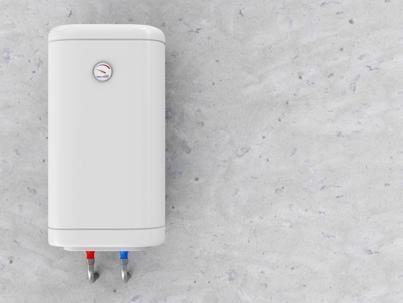Hard water in Omaha can quietly undermine your tankless water heater’s performance, creating costly issues if left unchecked. Over months and years, minerals like calcium and magnesium build up inside your system, impacting water flow, efficiency, and—even worse—the longevity of your equipment. Addressing tankless system descaling in Omaha is not just about comfort; it’s about protecting your investment, preventing surprise breakdowns, and ensuring clean, reliable hot water for your household. By understanding local water conditions and recognizing the importance of professional maintenance, you can make informed decisions that save money and stress in the long run.
What Does Tankless System Descaling Involve and Why Is It Essential for Omaha?
Descaling your tankless water heater involves removing hardened mineral deposits that naturally collect in the system due to Omaha’s hard water. Unlike traditional tank-style heaters, tankless units have narrower water pathways and heat exchangers. These are highly sensitive to blockages from calcium and magnesium. When scale forms, it acts as a barrier to heat transfer, forcing the system to work harder. As a result, households may experience longer waits for hot water, fluctuating temperatures, and a noticeable decline in heater efficiency.
Local water hardness accelerates the scale process. Omaha’s mineral-rich water makes regular descaling a critical step in preventing rapid system wear. Skipping descaling leads to wasted energy, higher utility bills, and a greater risk of sudden malfunctions. In our experience, homeowners who keep up with regular maintenance see their water heaters last longer and operate smoothly, giving peace of mind throughout every season.
Regular descaling also creates opportunities to inspect components for early signs of wear. Licensed professionals can spot issues such as failing valves or worn gaskets during these cleanings. By catching minor problems before they turn into expensive repairs, you gain both reliability and efficiency from your tankless water heater.
How Omaha’s Hard Water Affects Your Tankless Water Heater
Omaha’s water consistently tests in the hard category, thanks to high levels of dissolved calcium and magnesium. The Metropolitan Utilities District reports readings between 140 and 180 milligrams per liter—well above the threshold where scaling becomes a concern for tankless heaters. With every use, heating hard water causes minerals to form deposits inside the unit, especially along the heat exchanger and integrated piping.
This buildup blocks narrow passages within your heater, which are far less forgiving than in traditional water tank units. Even new systems can see performance losses within just a year if not properly maintained. Omaha homeowners should not overlook that scaling is a gradual process that produces cumulative damage—what starts as a minor efficiency drop can soon lead to total flow restriction, overheating, and safety shut-offs.
The effect of local water quality doesn’t stop at the water heater itself. Debris and scale can break loose, end up in your home’s plumbing system, and clog fixtures such as showerheads or appliances. Understanding these risks clarifies why routine tankless system descaling in Omaha makes such a visible difference in daily water quality and reliability.
What Are the Signs Your Tankless Water Heater Needs Descaling?
Recognizing early warning signs helps homeowners prevent major issues. One of the most common symptoms is inconsistent water temperature. If your hot water runs warm one moment and icy the next, this instability usually means scale is interfering with heat transfer in the system. Periodic temperature swings signal a heater struggling to deliver steady performance.
Decreased water pressure at taps, especially during high-demand times (such as multiple showers or laundry cycles), also points to scale buildup. When mineral deposits reduce internal space, water cannot flow freely, causing noticeable drops in pressure that make everyday tasks more frustrating.
Noises are a third key indicator. Many tankless units begin clanking, hissing, or rumbling when scale layers grow thick enough to hinder operation. Modern heaters often have error codes or warning lights to alert you about restricted flow or overworked components. Taking prompt action when you notice any of these warning signs can help you prevent major damage and restore optimal efficiency.
How Often Should Tankless Systems Be Descaled in Omaha?
Because Omaha’s water contains significant mineral levels, tankless water heaters typically require descaling every six to twelve months. However, the right interval varies depending on several important factors. To protect your investment and ensure top performance, consider:
- Water hardness in your neighborhood (testing kits are available for accuracy)
- The number of family members and overall hot water usage
- The age, brand, and model-specific maintenance schedule of your tankless heater
- Whether you use a whole-house water softener or pre-filter system
Larger families or homes that run multiple appliances simultaneously often need more frequent service. Changes in hot water demand during winter months or busy seasons also contribute to mineral accumulation. Tracking your water quality with a basic hardness test two to three times a year gives greater control over maintenance schedules.
Is DIY Tankless Water Heater Descaling Safe and Effective?
Some Omaha homeowners attempt to descale their tankless water heaters themselves, particularly with the rise of affordable flush kits and online tutorials. Typically, DIY kits include a submersible pump, hoses, and a suitable cleaning solution—most often white vinegar or a mild descaler. Homeowners can connect the kit to the water heater’s dedicated service valves, close off the house water, and circulate the solution for around 45 minutes to dissolve minor deposits.
While this approach addresses light scale and provides short-term relief, it comes with several risks. Incorrectly following instructions can lead to system leaks or damage. Some brands require specific chemicals or exact procedures; deviating from these instructions (such as using the wrong cleaning agent or failing to flush out the system afterwards) may harm sensitive components or void your warranty. Handling electrical disconnection and resealing water lines can also pose safety concerns, especially for those with little plumbing experience.
The DIY method rarely catches underlying issues, such as partially blocked internal sensors or worn-out gaskets. When scale buildup is advanced or error codes appear repeatedly, a trained plumber can ensure safe disassembly, proper reassembly, and full functionality. While DIY descaling may provide temporary improvement, professional service supports long-term performance and warranty protection.
What Do Omaha Plumbers Do During a Professional Tankless System Descale?
When hiring a licensed Omaha plumber for tankless system descaling, you receive a level of precision and thoroughness that's hard to match with DIY methods. First, plumbers safely shut off power and water to the unit, then connect professional-grade descaling equipment and solutions—specialized cleaners designed to dissolve stubborn build-up and reach all critical areas inside the heater.
Professional descaling often includes a full inspection. The plumber may partially disassemble the unit, inspect components like flow sensors, gaskets, valves, and igniters, and clear any hidden obstruction. These steps go beyond standard flushing, addressing deeply-entrenched scale and any emerging wear or corrosion. Working with plumbers who also serve as instructors, such as those at PlumbRite, means detailed explanations and smarter maintenance recommendations for every unique install.
After descaling, the system gets a thorough rinse and final performance test to check for leaks, proper temperature, and flow consistency. All components are recalibrated for peak operation. Professional descaling ensures that heater warranties remain intact and that potential long-term issues are caught before they can escalate into emergencies.
What Preventive Maintenance Can Omaha Homeowners Do Between Professional Tankless System Descales?
Taking preventive action helps extend the time between professional descales while reducing overall system stress. Installing a point-of-entry water softener or pre-filter system reduces the amount of calcium and magnesium entering your tankless water heater. These devices help hold down scaling and prolong the life of all water-using appliances in your home. Regularly checking and changing filters keeps the system maximally effective.
We recommend that homeowners routinely monitor their plumbing for early signs of mineral buildup. Watch for decreasing water pressure, longer warm-up times, or unusual noises from the heater. Identifying these signs early enables you to schedule maintenance before a small issue escalates into a costly breakdown. Marking your calendar for monthly checks, especially following heavy use or seasonal changes, provides an added layer of protection against unexpected problems.
Basic maintenance tasks—such as flushing your heater with clean water every few months—help delay heavy scale formation. While these actions are no substitute for professional service, they enhance your peace of mind and keep your system functioning at its best between visitations. Combining at-home care with scheduled professional service ensures Omaha households enjoy dependable, energy-efficient hot water all year long.
Why Choose a Licensed Omaha Plumber for Tankless System Descaling?
Entrusting your tankless system descaling in Omaha to fully licensed professionals delivers a combination of technical skill and tailored advice. Technicians who also teach at local vocational schools, as some on our team at PlumbRite do, bring a unique level of insight to each project. They not only perform thorough descaling but also educate customers about the unique risks and maintenance needs tied to Omaha’s water quality.
Our transparent pricing model and detailed communication give customers control and confidence. We provide a clear estimate before any work begins, outlining expected steps and total costs. This approach eliminates stressful surprises and supports informed decision-making every step of the way. Because our technicians build relationships with local families and businesses, we focus on finding solutions that make sense for your individual situation—not on upselling unnecessary services.
For Omaha-area homeowners, tankless system descaling protects your investment and ensures consistent, dependable hot water. If you have questions about your water heater—or want to be proactive about maintenance—reach out to PlumbRite at (402) 623-6802. Our community-driven approach means you’ll get straightforward answers, respectful service, and plumbing solutions that keep your household comfortable all year.

